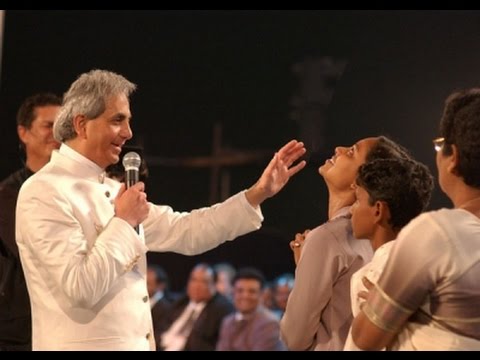Today's lectionary gospel reading features John the Baptist calling people to prepare for the coming Messiah. According to John, getting ready involves a change of direction or mind, repentance. That got me wondering about what sort of repentance is required for me or a congregation to embrace Jesus fully. This wondering was intensified because I had been thinking about an upcoming sermon that deals with miracles.
The context for my wondering is a secular mindset in a secular age. The stories of the Bible, of Jesus, of healings and miracles do not sit easily in our world. I'm not Thomas Jefferson, taking a razor and carefully removing all the miracle stories associated with Jesus in order to produce a pure collection of Jesus' teachings without foolish superstitions about demons and evil spirits and healings and exorcisms. But I do struggle with miracles. When I hear of a televangelist or other religious figure offering healings or other miracles, I assume he or she is a con and a fraud.
But do such secular assumptions create problems for following Jesus? Is there a change of mind, a repentance required of me and those like me if I am to be properly oriented for following Jesus?
I'm unsure of the exact connection, but the rise of a secular worldview seems to parallel the development of individualism. In its best forms this has encouraged everyone to recognize his or her own intrinsic value and worth. In its worst forms it has transformed us into free agents, each of us responsible for self alone, no overriding loyalties, allegiances, debts, or commitments. If one is wealthy, it is because she had done well for herself. If one is poor, it is because he has done poorly.
The message of Jesus certainly seems compatible with notions of intrinsic value and worth for every individual. But it seems totally at odds with being free agents. In the alternative community Jesus proclaims, there are profound commitments and obligations to the neighbor, to the other. And Jesus expands the neighborhood to include outsiders and enemies. It is a worldview that allows Jesus to die for the sake of others, even for enemies.
But central to Jesus' proclamation is the certainty that the power of God to transform, the bring life out of death, to make all things new, is active and at work in the world. God is shaping things, bending the arc of history toward particular outcomes. And if the power of God is at work in the world, then surely miracles must at least be a possibility.
Possibility and control are two very different things, and I suspect that much modern skepticism around religious miracles has roots in issues of control. Think of televangelists who offer healing for a donation or, more commonly, the notion of being healed if you pray hard enough or have sufficient faith. This is less about the power of God moving in surprising and life giving ways and more about formulas to harness such power. And one thing the Bible makes clear over and over is that the God of Jacob, the God we meet in Jesus, will not be harnessed. The God of Sinai and of the cross is radically wild and free.
But if God will not be harnessed, what does it mean to follow this Jesus who could trust his very life to the power of God to make new and give life? Surly it requires, at the very least, being open to the power of God at work in the world. And I'm not always open to such things.
Very often the Christian faith practiced by Presbyterians and other Mainline/Oldline denominations can be a mix of "believing in Jesus" and trying to follow some of his teachings (at least those we like). But this often includes no expectation that anything other than our own devices are involved. We're not inclined to claim any ability to control the power of God. We seem to think that only power involved is the power we possess. At least I often seem to operate from such a point of view.
And that is why I'm wondering about repentance, about a change of mind.
Click to learn more about the lectionary.

No comments:
Post a Comment